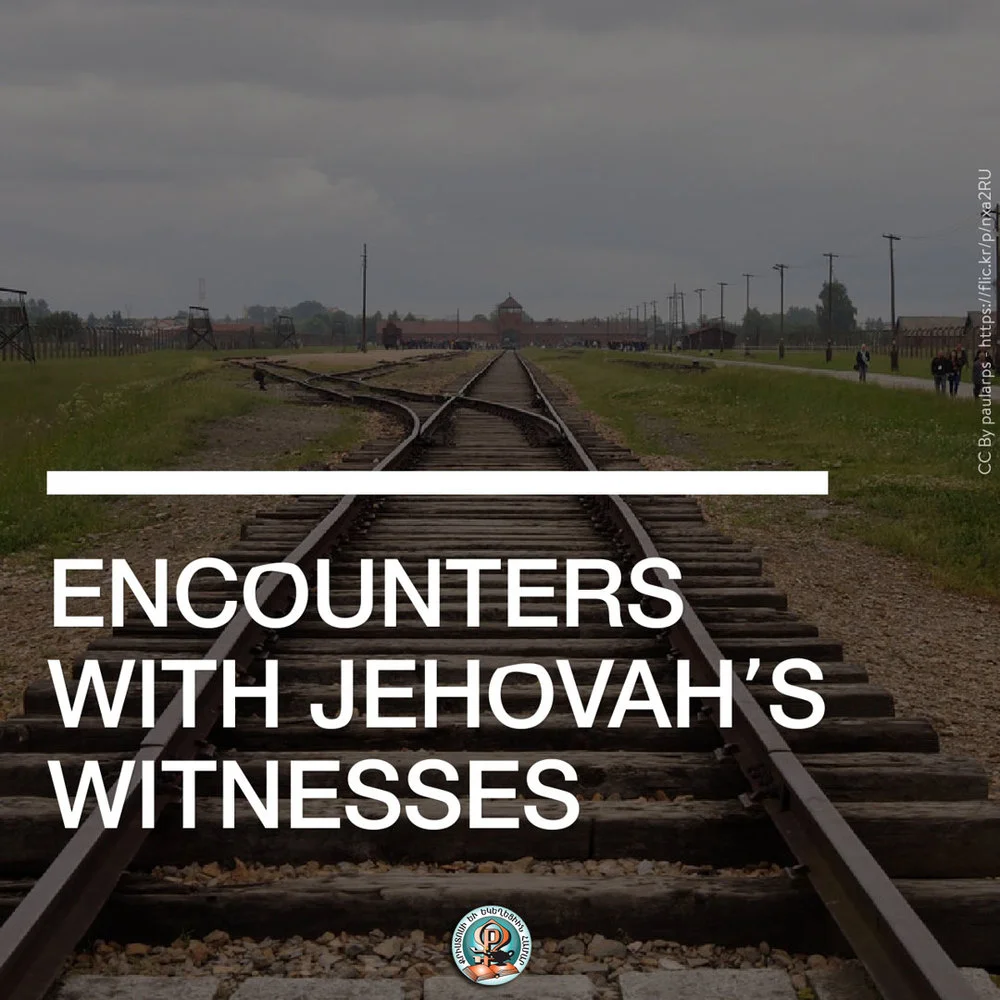by Vahé Jebejian
You are the salt of the earth, but if the salt loses its saltiness, how can it be made salty again? It is not longer good for anything, except to be thrown out and trampled by men. Matthew 5:13
Saint Augustine of Hippo warns Christians to be careful when debating with non-believers issues which have been demonstrated by reason and experience. In De Genisi ad litteram (The Literal Meaning of Genesis) he writes: “The shame is not so much that an ignorant person is laughed at, but rather that people outside the faith believe that we hold such opinions, and thus our teachings are rejected as ignorant and unlearned.” St Augustine makes a relevant point: How will people believe in things such as the resurrection of the dead and eternal life if they think that Christians hold beliefs and opinions that go against modern experience and reason?
Christophobia is a real thing in today’s culture. People have certain assumptions about Christians and often avoid getting into discussions with them. The challenge then is for Christians not to become socially irrelevant. Indeed, Jesus warns believers not to lose their saltiness, not to become bland (Matthew 5:13). God puts it even more bluntly in Revelation 3:16, “So, because you are lukewarm--neither hot nor cold--I am about to spit you out of my mouth.”
Science and Christians
As Christians, it is my belief that we should be the first to get excited about any new scientific discovery. On December 24, 1968, as Apollo 8 was in space, the crew announced the following: “We are now approaching lunar sunrise, and for all the people back on Earth, the crew of Apollo 8 has a message that we would like to send to you.” The message was none other than Genesis 1:1-10.
As believers we know “The heavens declare the glory of God; the skies proclaim the work of his hands. Day after day they pour forth speech; night after night they display knowledge. There is no speech or language where their voice is not heard. Their voice goes out into all
the earth, their words to the ends of the world,” Psalm 19:1-4. Thanks to science we are unveiling the “knowledge” and “speech” that the psalmist talks about. In Einstein’s words, “Science without religion is lame, religion without science is blind”. Similarly, Thomas Aquinas insisted, “Scripture and science are not contradictory, as human reason and divine revelation are gifts of God”.
From the 15th to late 19th century, major scientists were Christians, such as Newton, Kepler, Faraday, and Maxwell. Faraday, who discovered the magnetic field, says, “The book of nature which we have to read is written by the finger of God”. They saw no conflict between these two disciplines. For them, science pointed to God.
Science is a self-correcting discipline, everything undergoes scrutiny before it can be claimed as truth. Darwin waited for 20 years before he published On the Origin of Species. He was so overwhelmed by his findings that he was sure that it would shock the public. Darwin took time to assemble enough proof and evidence to support his thesis. At the end of his book, he states,
Thus, from the war of nature, from famine and death, the most exalted object which we are capable of conceiving, namely, the production of the higher animals, directly follows. There is grandeur in this view of life, with its several powers, having been originally breathed by the Creator into a few forms or into one; and that, whilst this planet has gone cycling on according to the fixed law of gravity, from so simple a beginning endless forms most beautiful and most wonderful have been, and are being, evolved.
Darwin does not deny the existence of God. He does not claim that evolution through natural selection is possible without God. In fact, he felt that evolution was working towards an increased complexity and possibly a divine purpose. Was this what the psalmist had in mind when he said, “When I consider your heavens, the work of your fingers, the moon and the stars, which you have set in place, what is mankind that you are mindful of them, human beings that you care for them?” Psalm 8:3-4
This is how Paul describes the Word of God: “Oh, the depth of the riches and wisdom and knowledge of God. How unsearchable are his judgments and how inscrutable his ways” Romans 11:33. Francis Bacon, author of The Advancement of Learning (1605), which later inspired Diderot’s and d’Alembert’s Encyclopédie, writes,
To conclude, therefore, let no man out of a weak conceit of sobriety, or an ill-applied moderation, think or maintain, that a man can search too far or be too well studied in the book of God's word, or in the book of God's works; divinity or philosophy; but rather let men endeavor an endless progress or proficience in both.
Yes, Christians are not of this world, but Jesus sent them into this world. Jesus explains this very clearly in the gospel of John, “My prayer is not that you take them out of the world but that you protect them from the evil one. They are not of the world, even as I am not of it. Sanctify them by the truth; your word is truth. As you sent me into the world, I have sent them into the world,” John 17:15-18. We are not of this world, but Jesus prays so that his disciples would stay in this world and keep their saltiness.
Next time we give a reason for our faith, as instructed by Peter in 1 Peter 3:15, let us be relevant to our today’s issues. The Christian worldview is the only one which makes sense of this world. Let us learn how to share it in a way where we will not lose our saltiness and be trampled on by others.









